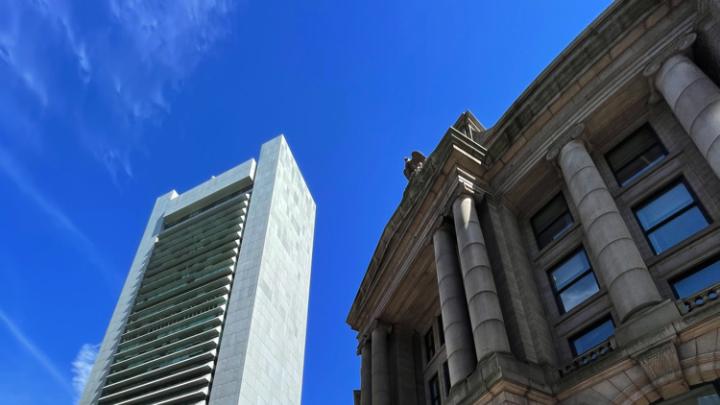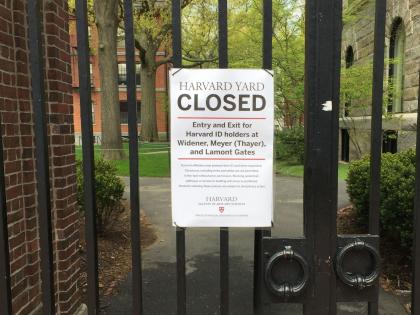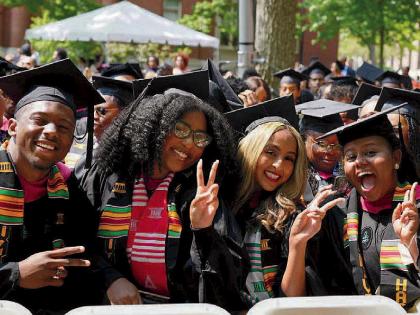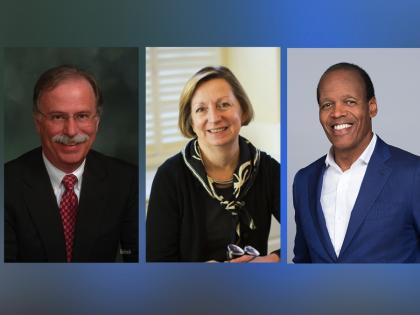Harvard Management Company (HMC) has released its annual report on progress toward a 2050 target of “net-zero” greenhouse gas (GHG) emissions associated with endowment investments and operations. As of June 30, 2023, the latest fiscal year for which data is available, the endowment’s exposure to climate transition investments exceeded 1 percent, up from the prior year’s report when such assets represented just under 1 percent of the portfolio. (The endowment assets totaled $50.7 billion as of that date.) At the same time, HMC’s exposure to fossil fuel holdings—through externally managed private equity funds to which it is contractually committed—declined from just over 2 percent in fiscal 2022 to less than 2 percent at the end of fiscal 2023, as “distributions from our legacy private energy funds continued to exceed capital calls,” according to the March 28 report. (HMC has no direct exposure to fossil fuel investments, and has made no new investments through external partners.) HMC’s report noted that “the endowment’s exposure to climate transition solutions is on pace to exceed those in fossil fuel-related investments in the next few years.”
HMC’s investments in technologies to accelerate the transition to low-carbon energy sources have been effected primarily through partnerships with climate-focused asset managers. They include Breakthrough Energy, an investment firm founded by Bill Gates ’77, LL.D. ’07, in 2015 “as a means of accelerating innovation in sustainable energy by financing, launching, and scaling companies that eliminate greenhouse gas emissions globally,” according to the firm’s website; and Eclipse, a venture capital firm that supports “digital transformation of physical industries.”
As reported in this magazine’s coverage of the first of HMC’s annual reports on its progress toward sustainability goals, in 2021, measuring the emissions intensity of the endowment—the emissions of the companies financed by HMC’s investments—has proven challenging. HMC is working with a third party to model the emissions attributable to its private equity investments, which represent 39 percent of the endowment portfolio. Assessing the emissions impact of its hedge fund investments—at 31 percent of the portfolio the second-largest asset class within the endowment—is even more difficult, given frequent trading of assets. As the report notes, “No standards exist for assessing the carbon emissions for financial derivatives and other strategies outside of buy-and-hold equity and corporate credit….While it is possible that hedge funds may have little net impact on the endowment’s carbon footprint, HMC believes it is important to run the calculations using the best available data rather than exclude a significant portion of the portfolio.” To that end, it has “built and piloted a custom hedge fund carbon emissions report” with an external provider.
HMC’s report also noted that its own operations were carbon neutral for the second year in a row, a balance achieved through the purchase of offsets for carbon dioxide removal from partners who meet “the highest standards for measurement, reporting, and verification.” (See the account of last year’s report for a detailed description of some of the strategies used by these firms to sequester carbon.)
With respect to the overall investment strategy, the report states that “HMC is optimistic that these investments in climate solutions will help drive sustainable development and job growth, while generating competitive financial returns”—not an unreasonable forecast given a world in which climate change impacts appear to be accelerating.
Read the full report here.








